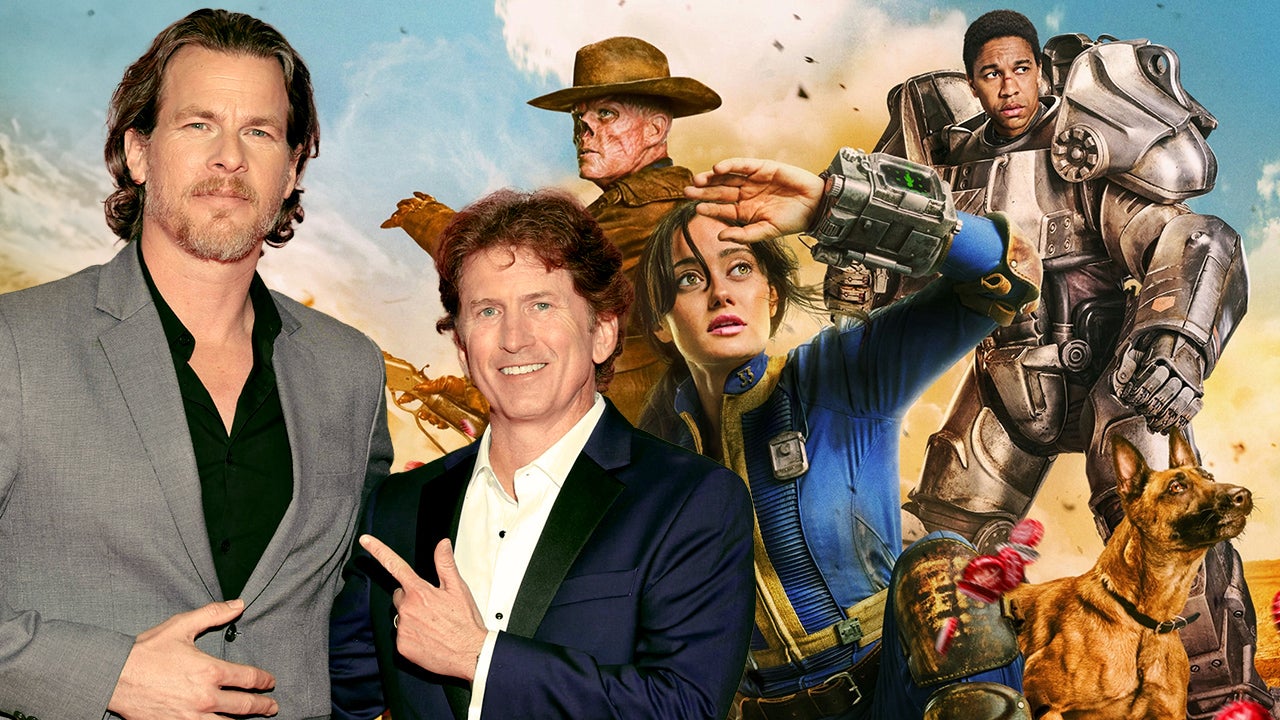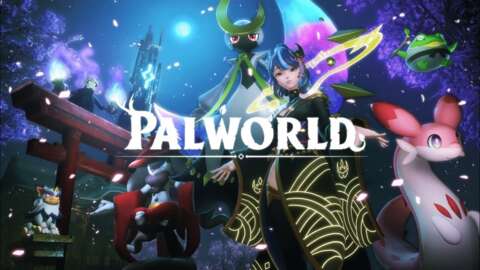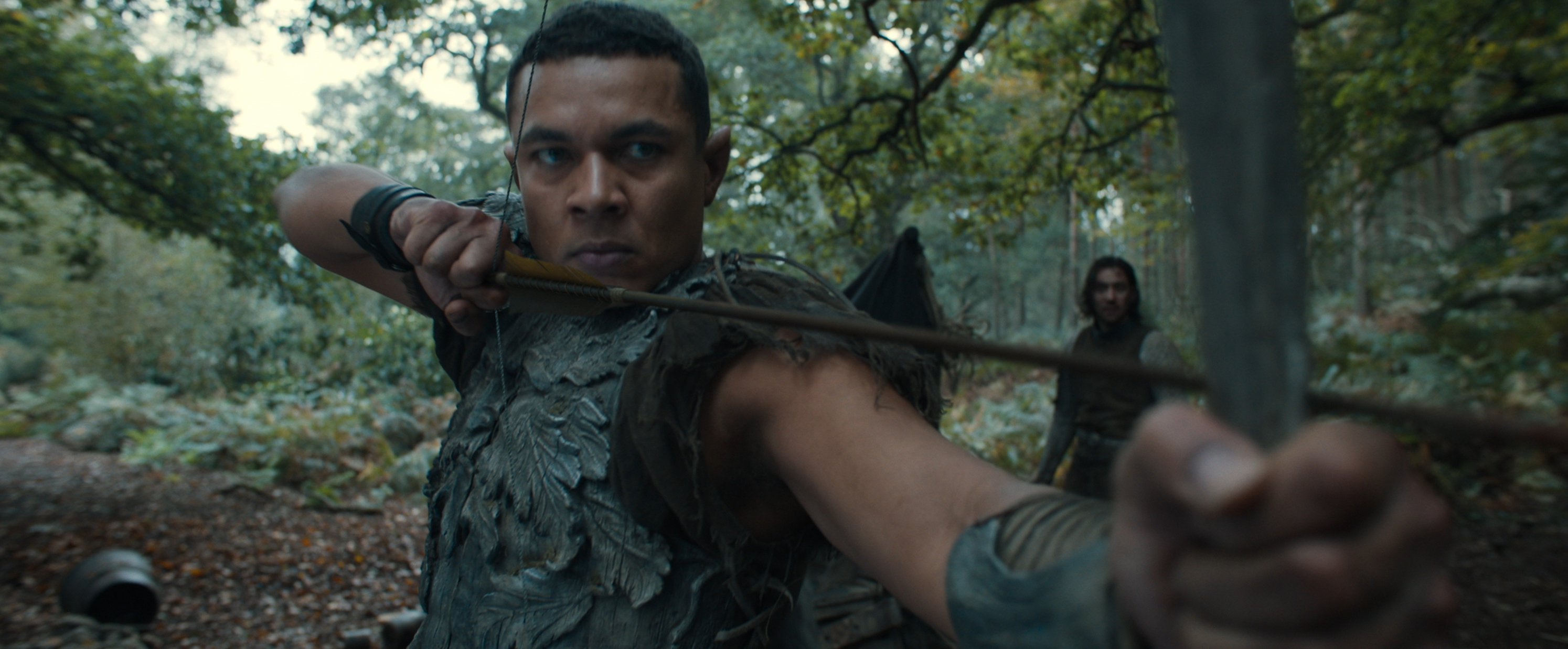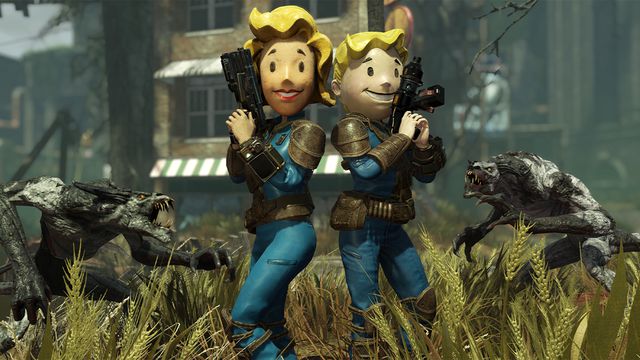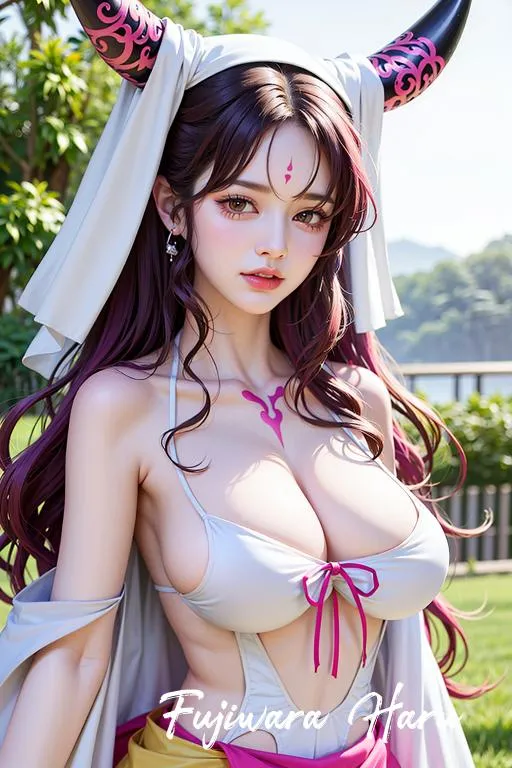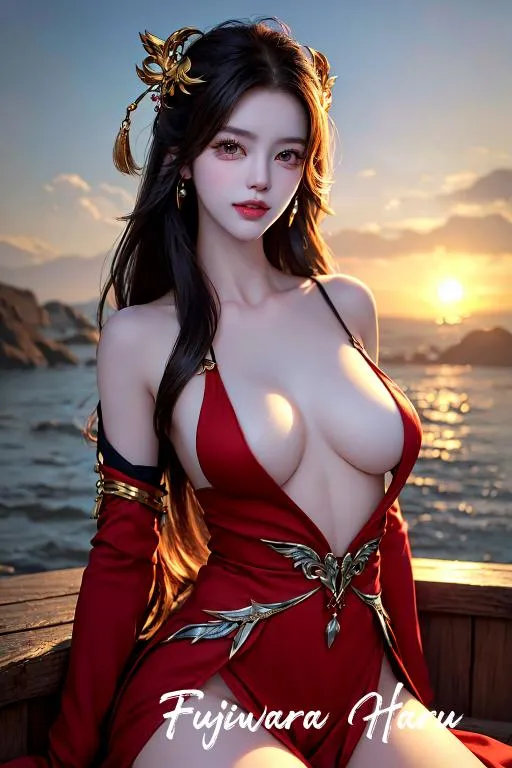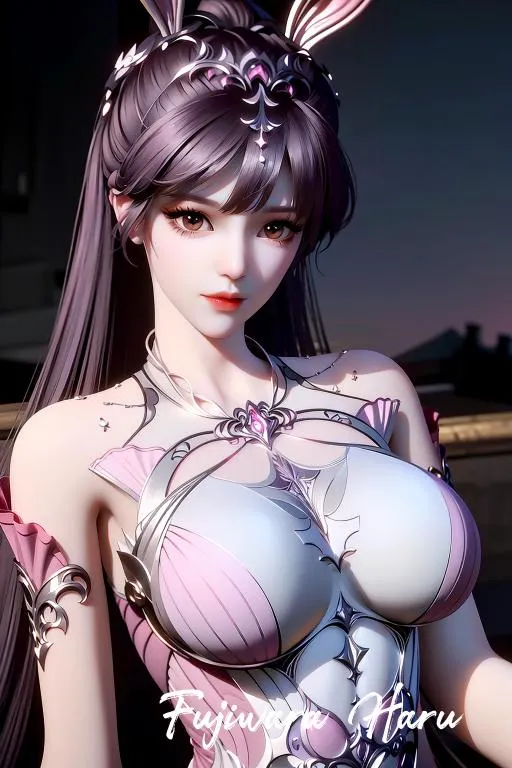Warning: The below contains FULL SPOILERS for Fallout Season 1, which is now streaming on Prime Video.
Fallout Season 1 has been streaming on Prime Video for nearly a week now, giving plenty of fans the chance to binge, discuss, and theorize. And, from the early reactions, the streaming platform's adaptation of Bethesda's beloved video game franchise is already seemingly a hit.
We're still awaiting official word from Prime Video on if we'll be getting more seasons (although there's already been promising signs), but it's been getting rave reviews, including a 9/10 from IGN. And with so many already finishing Season 1, what better time to talk spoilers with some of the creatives behind it?
Specifically, IGN caught up with Bethesda's Todd Howard, who also serves as an executive producer on the Prime Video series, as well as Jonathan Nolan (The Dark Knight, Interstellar, Westworld), executive producer and director of the first three episodes of Season 1. In a wide-ranging 30-minute conversation (video to come soon), the two shared more about bringing the world to life with showrunners Graham Wagner and Geneva Robertson-Dworet, reflected on some of the biggest revelations from Season 1, cleared up some timeline questions, and more.
I'm so glad we get to talk now post-release, because I feel like people have been binging it over the weekend and discussing it in earnest. Do you guys keep up with the reactions and reviews and fan theories, or are you kind of purposely staying out of that a little bit?
Todd Howard: I mean, I keep up with it. It's hard not to read all that stuff. And everybody's loving the show. So when you're getting all this great feedback, it's pretty much, it's a lot of fuel and all the credits of Jonah, Graham, Geneva, everyone who worked on the show. We're so happy.
Jonah, I am curious for your answer too, because I don't know if you got burned out on Reddit theories during Westworld or what have you?
Jonathan Nolan: We try to engage a little bit. I think it's always gratifying when people are enjoying something, that's really exciting. But I think you have to be a little careful because if you read too much, it could even subconsciously start to steer the ship a little bit in different directions. So I think I've dipped a toe in it and everyone seems to be excited, which is great. That's very gratifying.
Jonah, you've talked about how you're a big Fallout 3 guy. Can I ask you for your history with the series? When did you start playing? How many hours have you lost to this series?
Nolan: I started Fallout 3 shortly after it was released, which I think is 2008. And I wouldn't feel good about putting a number on exactly how many hours I played that game, but it was a lot. It was a lot.
At least a hundred?
Nolan: We'll say a healthy number. I did complete Fallout 3. I mean, not in a 100% quests accomplished, but pretty damn close. And I finished the main story.
It's a big game, in your defense. It's a Bethesda game. And Todd, you've talked about how you said no for years to a Fallout adaptation until Jonah came along with his pitch. Now that we can actually talk spoilers and details, I'm curious if there was any specific detail or hook in Jonah's pitch that made you think, "oh, this guy gets it."
Howard: Well, when we first talked first, I was such a fan of the work that he had done both in the movies and in television with Westworld. And when we first talked, it was, I wanted something that would stand up as another entry in the series as opposed to retelling one of the games we did and sort of treat it like we do a game and move the timeline forward and do some great things. And that's what he was thinking as well, which is like, "Hey, what's our ability to tell a new story?" TV is about finding the characters and how do we get the tone right in the show? So all of our initial conversations were around mostly tone. We know we're going to tell a new story, but I think the trick with Fallout is the world itself and how you go between all those different tones that the games have. And I thought the show does that really, really well.
Todd, of course, you're coming to this as kind of the lore master. When you went into the writer's room, did you have to correct a lot or did they already know their stuff when you came in?
Howard: They really knew their stuff, I'll tell you what. Everybody behind the show, it's one of the things that you wish people could see. Well, I think you see in the show, in terms of the passion, everybody involved in it brought to it - from Jonah to Graham and Geneva, our showrunners, the actors, the whole cast and crew. I would ask people. "Are all TV show sets like this?" Well, no. You see them all come together.
And the people that were even cameramen who were Fallout fans. And so obviously we were there from the beginning to help guide to make sure things were in line tone-wise and other little bits of fiction and other things. But they were so all over it and wanting to pull things from every game, from Fallout 1 to 3 to New Vegas to 4. There's even some 76 stuff in there. And I think it's one of the really wonderful things that it does if you're a fan of the series and everybody has kind of their favorite entry that you can see bits and pieces of that in the show.
Jonah, this show takes some very large swings with Fallout lore. And you're no stranger to big IP - you've done Batman, obviously, but was there anything where you were like, "is this too big a swing? Am I taking too much liberty with the lore here?"
Nolan: Well, I think you want to approach it from a place of humility, and this has been just a dream collaboration. I mean, the partnership with Todd and the rest of the amazing folks at Bethesda and the support there, and the openness to our team with Geneva and Graham to be able to get in here and do some real storytelling. I think the part that was the most exciting but also nervous-making were all of the flashbacks. And it was something that, as we were talking about it, Geneva and Graham were getting more and more excited about telling that story about what happened before the war. What precipitated the war. Cooper Howard's story. One little sliver of that larger story and a little bit more of an insight in Vault-Tec.
That was the place where we were both the most reliant on talking with Todd and the team over there a lot about, "okay, let's make sure that we don't... All of this fits together, plays nicely with all of the rest of the lore." But the ability for the show - which is something you might say, "why even make a show out of a game?"
The game has so much flexibility. They're so big, they're so epic, there's so many choices you can make and you're removing a lot of that openness with the series. But the series can do things like flashbacks that are a little more challenging with the game. So that world, that world before the war, which is so distinct, so satirical, it is so much of the flavor of these games, and the ability to play in that, I think, was incredibly exciting to us.
Was there any pushback on making a show that was extremely loyal to the lore in art design of the games?
Howard: I mean, there were lots of conversations. Things come up. Look, every time we do a game, we want to push the story forward as well. We're looking at things and how do we add? And so the show does that as well, as they had story elements that they wanted to do. It's like, oh, that's really interesting. Let's find a way to make that work...
So Graham and Geneva wanted to blow up Shady Sands. The first time they bring that up, you're like, "what do you want to do?" I had actually an emotional reaction to it given the history of that location in the franchise from Fallout 1. And we talked through it, and it was, "this will be a pretty impactful story moment that a lot of things anchor on." And just so people hear it, we're careful about the timeline. There might be a little bit of confusion at some places, but everything that happened in the previous games, including New Vegas, happened. We're very careful about that.
And so when they brought that up, threading that needle to make sure that that was a moment that landed in the show, that also moved things forward in terms of what's going to be happening in the world of Fallout. That was a big one that we talked about.
I was actually specifically going to ask you about that Shady Sands timeline conversation. And you say that nothing in New Vegas is retconned. I think the rub, to kind of TLDR it, is that "The Fall of Shady Sands" happens in 2277, which is four years before New Vegas. So are people just misunderstanding what "The Fall of Shady Sands" means or something like that?
Howard: All I can say is we're threading it tighter there, but the bomb falls just after the events of New Vegas. That's when Shady Sands blows.
So basically, "The Fall of Shady Sands," it doesn't mean a nuke, necessarily?
Howard: Correct.
Okay. I'm glad we got that out of the way. That was a big question.
Howard: Look, we are tight on the dates, if you really want to get into it. But what's important is when the show takes place. What is happening in the time period of the show? And that's what's most important to us.
And that brings me to this question of, you could have made the show in a way that, say, the MCU does, where the movies are separate from the comics. Why make it intertwined with the lore of the games?
Howard: Well, it definitely is harder to do, right? We just felt, as fans of Fallout, that would be the kind of show we'd want to watch and the things where we think the world of Fallout is going in the future. Look, for me, I can't say enough about the job Jonah and the whole team did on this in terms of... I love to work with other creatives that are going to bring a lot of new things to it. And as Jonah was referencing, what they were able to do in the past and Vault-Tec, and there's even more, I just thought, look, as a fan of Fallout, it's an absolute delight.
Nolan: I think from our end, we had seen the care with which Todd and the team at Bethesda had made sure that all of these games connect together, unlike the MCU or when I worked on Batman, where you have so many different stories, and long, long ago they abandoned any attempt to connect them all together. Everyone who worked on Fallout, all the games, were so respectful and so careful to keep this consistent universe. If we'd gone a different direction, the show would be the only thing that doesn't fit with that universe.
Now, obviously there's challenges there. These are open world games in which the games all have different endings, different outcomes, and you have to find a way to honor those. But we didn't want to be in our own little private corner of an Elseworlds or a different universe. I think that would be less meaningful to me watching the series, to know that it was completely divorced from the reality of the games.
So from what I have heard from you guys, being intertwined in the universe is more of an asset than an obstacle. Am I right?
Howard: Oh, for sure. For sure.
Nolan: I think it definitely more of an asset. It is a challenge. As Todd said, it'd be much easier for us to just, kind of like a bull in a China shop, just go in here and pick whatever we wanted. And in fact, I've worked on annotations before where they're defined by the degrees of difference from the source material, where you're adapting a book, where you're adapting, for instance, Westworld, the original brilliant film by Michael Crichton. The series shares the ethos of that film, but very few of the story moments.
Sometimes it's about making changes, and it's always more difficult to thread that needle of respecting all of the lore, respecting all the great storytelling that's come before you, and trying to find a way to not only play nicely with that, but also add to it if you can. So like I said, just a dream collaboration.
Especially as a fan, I can imagine. It's like, "oh, now I've actually made Fallout." That's pretty great.
Nolan: I (revisited) the conversations with my wife, Lisa (Joy, also an executive producer on Fallout), about all the time that I had spent playing Fallout. Now look, it's all turned out for the best.
Does Lisa play at all?
Nolan: We played some of Fallout 4 when we were developing seasons of Westworld. We sort of went back because so much of Westworld was about gaming and game mechanics and how the park would operate and the rule set. So we went back to kind of the greatest hits, including some of Fallout 3 and some of Fallout 4 so she could get a handle on it. But she's not a gamer.
I think one of the biggest swings in terms of impact on the Fallout world is this introduction of cold fusion. That's going to completely change this world. Jonah, where did that idea come from?
Nolan: It was something that we talked about with Graham and Geneva. One of the wonderful aspects of all these games is the speculative fiction, science fictional, retro-futuristical take on technology and this other path that America took down this kind of Eisenhower, fission-powered universe. And you get to play with the idea. I think one of the things that was appealing to Geneva and Graham, and I don't want to speak for them in terms of where this puts the story, but it gave you a chance to consider the mechanics underneath scarcity, the ideas underneath this world, and what it would take.
And I think this is one of the things that's always so exciting for me about the Fallout universe where, look, there's lots of darkness in this world and there's lots of satire that has a lot to say about our world, but amidst all the apocalyptic lore, there is also a sense of optimism. I've spoken about that. There is a sense that out of the pieces of this world, there's the possibility to craft a new future that might work a little better than the one that they left behind. And I think all these ideas of technology... I am what I would describe as a reluctant techno optimist. I believe in human ingenuity. I'm hopeful that our future will get better and better and better, but you also have the double-edged sword of that. And I think that's something that's integral to the themes of the game series.
I want to dive into this main trio of characters of Lucy (Ella Purnell), Maximus (Aaron Clifton Moten), and Ghoul or Cooper (Walton Goggins). And we'll start with Lucy. I found it so refreshing how she is this very optimistic character, and you kind of expect throughout Season 1 for her to take a turn, but she never does. She gets tougher, but she still remains essentially the Leslie Knope of the wasteland. I'm curious if that was always the idea or if there was ever a thought where she might get a little more cynical.
Nolan: I think it's one of the things that we really enjoyed about Geneva and Graham's pitch for these characters from the beginning, was that there would be the ability to grow, and I think change is always a possibility there, but there would be certain things that these characters would really hold onto, essential pieces of their character. I think Lucy is essentially such a likable character, in part because her idealism is kind of unchallenged when it starts. And then as the story continues, you see what are the things that in the crucible of the wasteland, what's she going to discard and what's she going to hold onto? And her essential decency is something that I think, even when she's tasked with making some very difficult choices, even when she's tasked with taking a life, I think you still feel that decency underneath it. I think that was a really exciting choice.
And she really goes through it throughout Season 1, and you have this big reveal, of course, about her father, Hank. Is he basically our big bad now?
Nolan: You have to stay tuned and see. And we loved working with Kyle MacLachlan. What a treasure that guy is.
He's so good. Moving onto the others, I saw a take that was, basically, the three characters were perfect embodiments of the D&D alignment chart. Lucy is good, Maximus is neutral, and Ghoul is evil. And I really love thinking about Maximus as neutral because a lot of his choices, I feel, come from just naivete. What are you trying to say about the Brotherhood of Steel as an organization through this character?
Nolan: Yeah. And Todd, I'd love to know what you think of the Brotherhood of Steel. For me, I just remember that moment where they offered to let you join up: "I'm not quite sure. Are we in a Paul Verhoeven, Starship Troopers kind of moment here? Do we feel good about this organization or bad? The helmet looks cool, you want to wear that armor, right?" And I think for me, Max really represents my experience playing these games, where I'd like to think that I play through it with Lucy's moral virtue, but the truth is there's some moments where you just want the big gun and you just want the kick-ass armor, and you're trying to figure out how much you're willing to morally compromise yourself. I think Aaron Moten just did such an incredible job of portraying that neutrality, that ambiguity of which way he's going to go.
Todd, I would also love to get your thoughts on that because I agree that you never really know how to feel about the Brotherhood of Steel.
Howard: And that's how it should be. Look, you see it. You see this when the airship comes and they come walking out, it's just like, it's completely badass. There's no other word to be like, "I want to be post-apocalyptic Iron Man tank. And then how compromised morally am I going to be? Who are they out for?" And I really love a lot of the scenes where they're teaching technology or how they treat squires. The thing I definitely want to borrow is I love the solve for how all of these weapons are carried around with the giant golf bag. So if I had a wish, you'd see that in the game, like 76, really soon. But there's so many great parts about the Brotherhood of Steel in terms of what the wasteland can mean. And so I think Max often is the player. "Would I have done that? Is he making the right choices?" And I think Aaron pulls it off great.
I also find the dynamic between Lucy and Max to be so interesting. I mean, in your guys' opinion, are they actually in love by the end of Season 1 or is it essentially a marriage of convenience?
Nolan: No, I don't think it's a marriage of convenience. I think there's a genuine bond there. Their backgrounds are so different, and yet they've found this space in between where they relate. No, I think there's a very genuine level of connection there in the way of all things. There's a little bit of comedy, there's a little bit of tragedy in the show, so we'll see if they can find each other again.
Speaking of tragedy, I think we have to talk about Walton Goggins and Ghoul, who has just been a breakout character. First of all, the most obvious question, is Cooper Howard named after Todd?
Nolan: No comment.
Fair enough. And I think one of the coolest lore reveals is that he's kind of Vault Boy, or at least Vault Boy is based on advertisements that Coop did. Is that kind of where the character started?
Nolan: The conversations with Graham and Geneva and Todd talking about that lore and backing into it, we just love the idea of Cooper, when we knew the show was set in Los Angeles and the kind of ruins of Hollywood, the idea of Cooper as this figure embroiled in a kind of a Red Scare McCarthy-like moment in this bizarro alternate future was kind of too delicious for us to pass up, because here we are again, the Hollywood assholes coming to adapt this beloved video game franchise. So there was a meta satirical level that we just thought was delicious. And then of course, this question of how far is too far in terms of actors or writers or anyone in terms of that corporate sponsorship, sort of going down that rabbit hole. So I think picking up the mantle of the satire from the games and trying to direct it back towards Vault-Tec was one of the most exciting things that we got a chance to do.
What kind of balance was there in the, I would say more morally-compromised Ghoul that we see and trying to also hold onto who Coop was 200 years ago?
Nolan: That's an ongoing story. I think that's one of the things that's so fascinating about these characters. He's seen the whole story and you so seldom get a chance to write a character with this kind of span where in flashbacks, you're looking at someone who, I think from the first frame, you understand is decent. He makes some mistakes, he learns some things along the way, but I think we understand from his first interactions with his daughter, this inherently decent person, and then we see what the rack of time has done to him and it creates this chasm between who he was and who he is. And I think it's just a fascinating thing for the show to explore. I think by the time you get to the end of the season, you understand this is a person who's capable of evil, capable of ruthlessness, has seen enough life come and go that life is truly cheap to him. But I think there is still a question of what drives this? What is driving this person, what has been driving this person for these hundreds of years?
And you kind of have this great line drop in the finale with both Barb and Coop saying, "War never changes." Was it important for you guys to have that line in there in a prominent role, given that it's kind of, in certain ways, the ethos of Fallout?
Nolan: Yeah. Graham is an even bigger fan of Fallout, or an even, I wouldn't say a bigger fan, but a longer standing fan. He's been playing since the very first game. And so we talked and they talked, Graham and Geneva talked endlessly about the right moment for that line to land. I think a lot of people would expect to see it in the very beginning of the series. I love the way they kind of Casino Royaled it, right? One of the beauties of that film is that you wait the whole film to hear that distinctive John Barry guitar sting that announces that Bond has begun. I think there's an opportunity to take that line and use it to kind of plant a flag here that hopefully our story has just begun as well.
Now, I'm going to ask you guys a number of questions where I'm pretty sure the answer will be, "Wait until Season 2." But I'm going to try it anyway. Staying on the subject of Coop, you have this huge reveal in the finale that Barb kind of betrayed him. It's a pretty evil decision. She was one of the architects of the nuking. Are we going to get an answer for that about, is there going to be some kind of justification to kind of save Barb?
Nolan: I don't know if you'd say there's a justification, but we are very much hoping to continue telling that story. That's going to be my answer for all these questions. I wish Graham and Geneva were here, but they would say the same thing. I think we're just so excited. I think again, those flashbacks, that storytelling, those characters, those actors was so much fun for us that I think if we're lucky enough to continue telling the story, that will definitely be a part of it.
I'm curious how you guys see the NCR as it stands now. Is it demolished or is it kind of more like the Minutemen where it's just fractured?
Howard: One of the takes that we always have is to approach things very locally when we're doing Fallout. We're careful about saying what's going on in other parts of the world. And we always take this view of, communication is difficult. And look, if you look at the background, the NCR is a wide-ranging sort of organization and group across not just California, but other places. So the show focuses on this period of time and this group here, and that's what we can say right now. But I don't think you've heard the last of the NCR.
And I'm sure we haven't heard the last of Moldaver (Sarita Choudhury). Again, question that will probably be answered in Season 2: Are we going to find out why she's been around for so long? We didn't find that out in Season 1.
Nolan: We did not. Did we? I would love it. I would love to spend a little more time. Yeah. Sharita's a lovely human being, fantastic actor, and I think picking up that story would be great fun.
I'll take a break from grilling you guys about the lore and ask you about some of the BTS (behind-the-scenes). For all the people that we did see - I loved the Matt Berry cameo, that was great - I was a little surprised not to see Mr. Ron Perlman in the show given that he has such a big role in the games. Was there any talk of bringing him in?
Nolan: There are so many treasures in these games that I think some of the characters, some of the factions, some of the locations, we didn't want to try to tackle everything in one season. So again, a question I would leave up to Graham and Geneva, but I like the pace. There were moments in which you sort of say, "Okay, pace yourself." I mean, I think one of the reasons why Todd and I in that very first conversation recognized that this had to be a series was because the scope of the games.
Each individual game is, as we said, 50 to a hundred to many, many more hours of gameplay. There's so much storytelling in each of these games that we knew from the beginning a movie couldn't possibly encompass all of it. Even one season of a series couldn't get close. So there's been a mantra from the beginning, and again with fingers crossed that everyone loved the show, we get a chance to keep going. I think a mantra with Geneva and Graham that we, and a lot of conversations that we have, we say, "Pace yourselves." You're not going to try to tackle every single part of this universe in one go.
With celebrities who are fans of Fallout, have you heard from anyone since the show came out who's like, "Hey, I love Fallout. Why wasn't I in the show? Can I be in Season 2?"
Nolan: Aaron Paul. Yeah, Aaron Paul was at the premiere, a human being I love so much. And he was very polite. He was very enthusiastic about the show. There was sort of an unspoken kind of like, "What's up, man?" But we've been hearing from so many people, and it's kind of fun to see the Fallout fans come out of the woodwork. People you've known a long time and you realize, "Oh, you've been playing this whole time." So it's been a lot of fun.
Are you going to get your brother (Christopher Nolan) into Fallout with this show, or is he already into it?
Nolan: We grew up playing games together, but mainly when we get together, and I think most of the gaming that he does these days is just cooperative stuff with me occasionally. But we both had kids. He's got a lot of kids and I got lots of kids and now they get to play the games. I think the last game I played with Chris was probably Rock Band with his kids.
It's a good one. I love it. I have the drums and the guitar in my apartment.
Nolan: It brings a family of talentless musicians together.
Todd, I want to switch gears a little bit and ask more about the games. We obviously know that Fallout 5 is in the works, but you have said in the past that the plan is Elder Scrolls VI and then Fallout 5. Is that still the plan or is there any chance that that could change based on the interest from the show?
Howard: I'm going to avoid putting dates on anything. I've learned that the hard way. So obviously, our focus as far as new development right now is Elder Scrolls VI, but that doesn't mean that we're not making plans for other things. We're still doing a lot of work, obviously on Fallout 76, and we see the community, so many people going into that game and kind of rediscovering it and just so happy with where that game is at. It really does, and I mean, this has one of the best communities in all of gaming. Surprisingly, it's a very, very nice apocalypse, and we're doing a lot of Starfield work as well. So we have some really good updates that are going to get announced soon for that game. So, a lot going on here.
I've been waiting to see the mods. When are they going to add Walton Goggins?
Howard: You can get the ghoul suit, I think, now in 76. Yeah.
And to press you about the future now, Jonah. In the past you've talked about wanting to finish Westworld and having this plan for it. I'm curious if you and Graham and Geneva have this multi-season plan for Fallout, or are you kind of still feeling it out?
Nolan: No, we talk it through. I think you have a responsibility when you undertake one of these journeys to have a bit of a plan. You'd also be foolish to not account for the things along the way. That's one of the beauties of television. You'll start working with an actor who maybe came in for a little cameo and then winds up becoming a key part of your universe. That's happened on every show I've ever worked on.
So you want to have a plan, but you also want to be flexible enough and adaptable enough that you're not locked into that. And for the obvious reason that especially these days with these shows, you want to make every season as great as you can. We approach it more now from the perspective, the same place we approach a film franchise, where you try to make a terrific season and if you're lucky enough to go again, you make a follow-up, you leave enough material and you have enough of a master plan from the beginning that you know what the next step would be, and we have been talking for some time now about the next steps for Fallout, and we're very excited about it.
Alex Stedman is a Senior News Editor with IGN, overseeing entertainment reporting. When she's not writing or editing, you can find her reading fantasy novels or playing Dungeons & Dragons.
